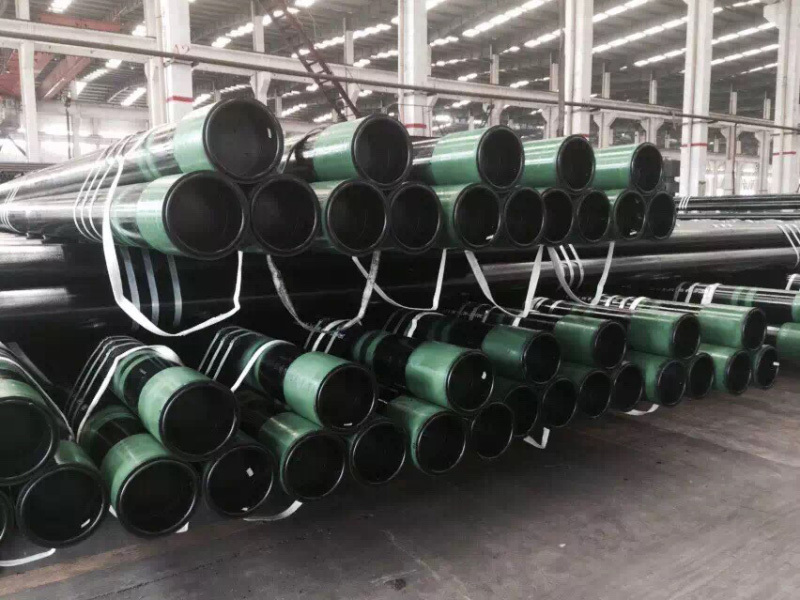Leading Smls Pipe and fittings supplier from China since 1991
Understanding Oil Well Tubing: Essential Knowledge for the Automotive Industry
Oil well tubing is a crucial component in the oil and gas industry, particularly in the extraction phase of petroleum production. This specialized type of pipe is designed to line the borehole of an oil well, providing a conduit for crude oil and natural gas to flow to the surface. Understanding the structure and function of oil well tubing is essential for professionals in the automotive industry
Jul 03,2025

Oil well tubing is a crucial component in the oil and gas industry, particularly in the extraction phase of petroleum production. This specialized type of pipe is designed to line the borehole of an oil well, providing a conduit for crude oil and natural gas to flow to the surface. Understanding the structure and function of oil well tubing is essential for professionals in the automotive industry, especially those involved in the manufacturing of automotive parts related to fuel systems and oil transportation.
Oil well tubing is typically made from high-strength steel, which allows it to withstand the extreme pressures and corrosive environments found deep within the earth. The tubing comes in various sizes and thicknesses, depending on the depth of the well and the characteristics of the extracted fluids. The selection of appropriate tubing is vital to ensure the efficient and safe extraction of oil, as well as to minimize potential leaks or failures that could lead to environmental hazards.
One of the key functions of oil well tubing is to facilitate the transportation of oil from deep underground to the surface. Once the oil is extracted, it may undergo a series of processes before entering the automotive supply chain, such as refining and treatment to remove impurities. The integrity of the oil well tubing is paramount during this process, as any compromise can lead to significant financial losses and environmental risks.
In addition to its primary function of transporting oil, oil well tubing also plays a role in maintaining well pressure and preventing contamination of the extracted product. Proper installation and maintenance of tubing are essential to ensure optimal performance and longevity. Regular inspections and adherence to industry standards help mitigate the risk of failure and ensure the safe operation of oil wells.
Furthermore, advancements in technology have led to the development of specialized oil well tubing that can enhance the efficiency of oil extraction. Innovations such as corrosion-resistant coatings and advanced welding techniques have significantly improved the durability and performance of these tubes, making them an indispensable part of modern oil extraction operations.
For those in the automotive and parts manufacturing industries, an understanding of oil well tubing's specifications, applications, and maintenance practices can provide valuable insights into the broader petroleum supply chain. This knowledge can assist in making informed decisions regarding the sourcing and use of materials, ultimately contributing to more efficient automotive fuel systems and enhanced vehicle performance.
In conclusion, oil well tubing is a sophisticated component of the oil extraction process, essential for ensuring the safe and efficient transportation of petroleum. Its significance in the automotive industry cannot be overstated, as understanding its design and function can lead to improved practices and innovations within the sector.
Oil well tubing is typically made from high-strength steel, which allows it to withstand the extreme pressures and corrosive environments found deep within the earth. The tubing comes in various sizes and thicknesses, depending on the depth of the well and the characteristics of the extracted fluids. The selection of appropriate tubing is vital to ensure the efficient and safe extraction of oil, as well as to minimize potential leaks or failures that could lead to environmental hazards.
One of the key functions of oil well tubing is to facilitate the transportation of oil from deep underground to the surface. Once the oil is extracted, it may undergo a series of processes before entering the automotive supply chain, such as refining and treatment to remove impurities. The integrity of the oil well tubing is paramount during this process, as any compromise can lead to significant financial losses and environmental risks.
In addition to its primary function of transporting oil, oil well tubing also plays a role in maintaining well pressure and preventing contamination of the extracted product. Proper installation and maintenance of tubing are essential to ensure optimal performance and longevity. Regular inspections and adherence to industry standards help mitigate the risk of failure and ensure the safe operation of oil wells.
Furthermore, advancements in technology have led to the development of specialized oil well tubing that can enhance the efficiency of oil extraction. Innovations such as corrosion-resistant coatings and advanced welding techniques have significantly improved the durability and performance of these tubes, making them an indispensable part of modern oil extraction operations.
For those in the automotive and parts manufacturing industries, an understanding of oil well tubing's specifications, applications, and maintenance practices can provide valuable insights into the broader petroleum supply chain. This knowledge can assist in making informed decisions regarding the sourcing and use of materials, ultimately contributing to more efficient automotive fuel systems and enhanced vehicle performance.
In conclusion, oil well tubing is a sophisticated component of the oil extraction process, essential for ensuring the safe and efficient transportation of petroleum. Its significance in the automotive industry cannot be overstated, as understanding its design and function can lead to improved practices and innovations within the sector.
Hot Tags:
PREVIOUS:





